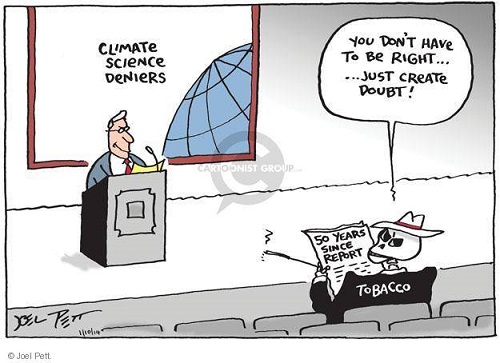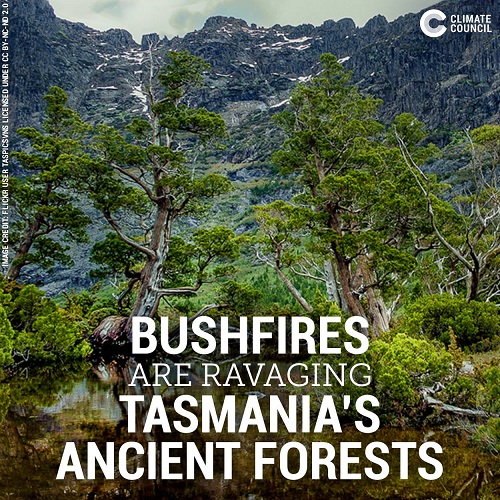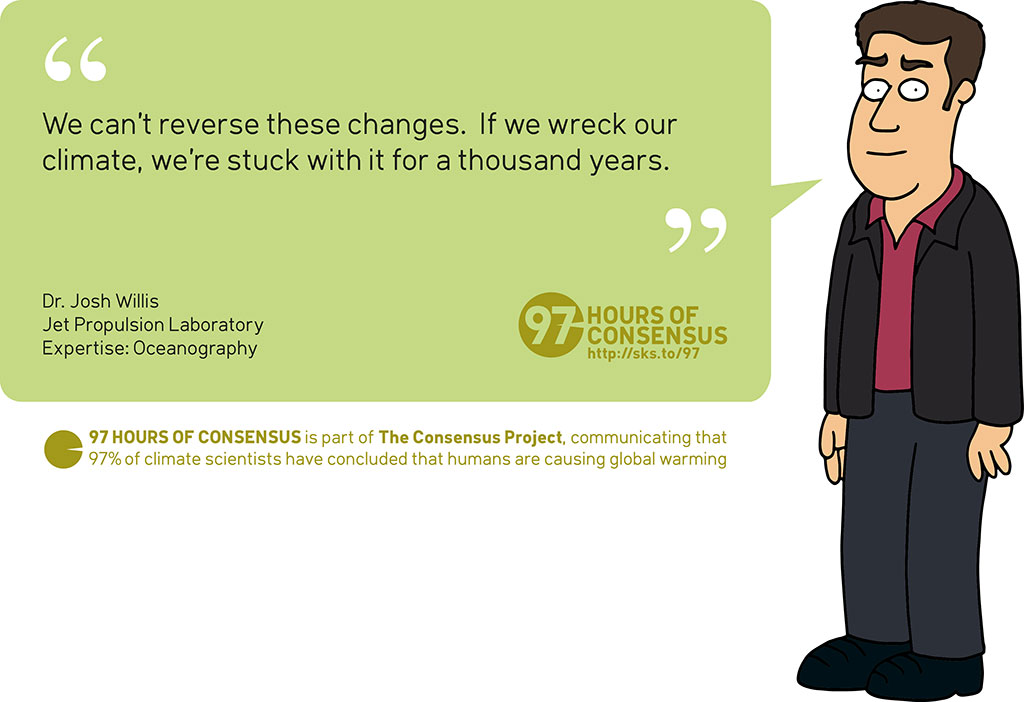
SkS Highlights... El Niño Impacts... Toon of the Week... Quote of the Week... They Said What?... SkS in the News... Coming Soon on SkS... Poster of the Week... SkS Week in Review... 97 Hours of Consensus...
Record hot 2015 gave us a glimpse at the future of global warming by Dana Nuccitelli (Climate Consensus - the 97%, The Guardian) garnered the highest number of comments of the articles posted on SkS during the past week. Climate scientists' open letter to the Wall Street Journal on its snow job by Emmanuel Vincent & Daniel Nethery (Climate Feedback) attracted the second highest number.
Global temperatures will continue to soar over the next 12 months as rising levels of greenhouse gas emissions and El Niño combine to bring more record-breaking warmth to the planet.
According to the Met Office’s forecast for the next five years, 2016 is likely to be the warmest since records began. Then in 2017 there will be a dip as the effects of El Niño dissipate and there is some planet-wide cooling.
But after that, and for the remaining three years of the decade, the world will continue to experience even more warming. The forecast, which will be released this week, is the first such report that the Met Office has issued since it overhauled its near-term climate prediction system last year.
Here is the weather forecast for the next five years: even hotter by Robin McKie, The Guardian, Jan 30. 2016
Severe El Niño-linked drought has destroyed crops, killed farm animals and dried up water sources across East Asia and the Pacific, aid workers said, and UNICEF appealed for $62 million to assist children impacted by various crises in the region.
Humanitarian agencies are monitoring and responding to droughts and food insecurity in an area from Indonesia and the Philippines, southeast to Papua New Guinea and the Pacific Islands.
"El Niño is peaking at the moment, and we expect the impacts to come up after the peak," said Krishna Krishnamurthy, a regional climate risk analyst for the World Food Programme.
El Niño parches Asia Pacific, destroying crops and drying up water sources by Alisa Tang, Thomson Reuters Foundation, Jan 26, 2016

Hat tip to I Heart Climate Scientists
Scientists who take the long view on climate change see parallels between global warming today and mass extinctions in Earth’s past: “Apart from the stupid space rock hitting the Earth, most mass extinctions were CO2-driven global warming things,” says Professor Andy Ridgwell of Bristol University in the UK.
It has been a consistent pattern throughout geological time: “If you screw with the climate enough, you have huge extinctions,” says Ridgwell.
If the world ends in 2100, we’re probably OK' by Howard Lee, Climate Consensus - the 97%, The Guardian, Jan 27, 2016
Florida’s leading candidates for the Republican presidential nomination, Marco Rubio and Jeb Bush, have both criticized federal action to combat climate change, with Rubio warning it would “destroy” the US economy and Bush predicting “someone in a garage somewhere” will solve the problem instead.
Jeb Bush pins hopes on 'someone in a garage' to tackle climate change by Oliver Milman, The Guardian, Jan 29, 2016
In his letter-to-the-editor, Warming is no Neverland fantasy, published in the Providence (RI) Jornal, Frank Leven states:
There is consensus among climatologists that global warming is human-caused, resulting from the burning of fossil fuels. This is accepted by national academies of science worldwide and the scientists of the IPCC, and also by the U.S. Department of Defense. More to the point, of the more than 12,000 peer-reviewed abstracts of articles on global warming that were published between 1991 and 2011, 97 percent of their climatologist authors agreed that it is human-caused. This 97 percent result was peer-review published by John Cook and collaborators; Cook, by the way, never stated that his results were incorrect, though this false claim was made. In fact, a re-analysis upheld his results.


Quote provided by email
Posted by John Hartz on Sunday, 31 January, 2016
 |
The Skeptical Science website by Skeptical Science is licensed under a Creative Commons Attribution 3.0 Unported License. |